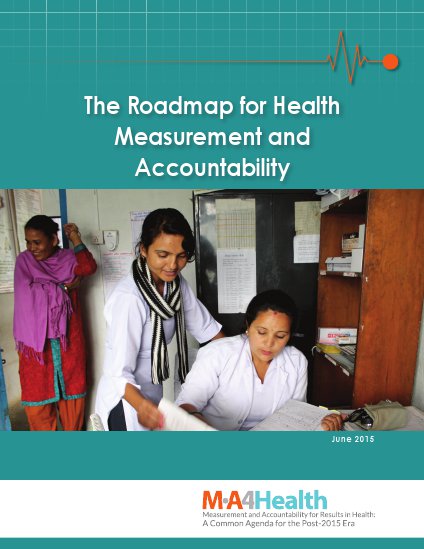For Immediate Release
WASHINGTON, D.C. - The U.S. Agency for International Development (USAID), World Bank Group (WBG), World Health Organization (WHO) and country partners commit to increasing the use of data in global health. This enhanced approach will increase the use of data to identify health threats and direct resources to address them quickly and efficiently.
The commitment was announced at the Summit on Measurement and Accountability for Results in Health where 56 foreign governments and dozens of global health leaders from multilaterals, academia, research institutions, and civil society endorsed the new Roadmap for Health Measurement and Accountability and 5-Point Call to Action. The Roadmap and Call to Action outline a shared strategic approach and priority actions that countries and development partners will use to strengthen health information systems, improve measurement of impact, and increase accountability.
There is a growing demand for timely and accurate health-related data in order to ensure global health security. Threats are multiple and complex, and emergencies such as the Ebola outbreak have shown the limits of fragile systems. This summit will help countries harness the information needed to plan, manage, and account for the results of health policies, respond to health inequities, and measure progress in achieving goals. It will also show how international assistance can best support these actions.
The participants agreed to the following targets for health measurement and accountability in low- and middle-income countries:
- Increase and improve investments in health information systems;
- Strengthen capacity to collect and analyze data at all levels of the health system;
- Ensure countries have robust population health data and health survey programs;
- Maximize effective disease and risk surveillance with real-time access to information;
- Promote accountability through monitoring and transparent reviews of progress.
"With the end of the Millennium Development Goals (MDGs) and advent of the Sustainable Development Goals (SDGs), we are at a key moment to shape the future of international development - and that includes improving health," said Alfonso Lenhardt, Acting Administrator of USAID. "Countries need to build and further strengthen their capacity in health so they can meet the growing demands for reliable and timely data required for effective measurement of health programs."
"If we are going to ensure that people everywhere have access to quality health care, and that no one is impoverished paying for the health care they need, we need to invest in high-quality, timely, and accurate data and statistics so that countries can measure and monitor their progress," said Jim Yong Kim, President of the World Bank Group. "Today's investments in country health information systems will lead to a better tomorrow for billions of people."
"Investing in measurement is a good investment in health and countries that build and strengthen local capacity are better positioned to achieve greater long-term success and better health outcomes," said Margaret Chan, Director-General of WHO.
Related Press Releases
- 10,000 Community Health Volunteers Receive Equipment from USAID’s Community Capacity for Health Program
- Afghanistan Ministry of Public Health Launches First Data Warehouse for the Health Sector with help from USAID
- USAID and the National Center or Healthy Lifestyles Promotion Conduct Training for Journalists on Tuberculosis Reporting








Comment
Make a general inquiry or suggest an improvement.